Individual rights are sacrificed for the collective good from "summary" of Darkness at Noon by Arthur Koestler
In the struggle for power, sacrifices are inevitable. Sacrifices of individuals for the greater good of the collective. This concept lies at the heart of the ideological battle depicted in the novel "Darkness at Noon". The protagonist, Rubashov, grapples with this very dilemma as he navigates the treacherous waters of a totalitarian regime. His own personal beliefs and freedoms are constantly at odds with the needs of the Party and the revolution it seeks to achieve. Throughout the novel, Rubashov is faced with the harsh reality that in order to achieve the collective good, individual rights must be subordinated. This is exemplified in the Party's ruthless pursuit of power and control, where any dissent or deviation is swiftly dealt with. Rubashov himself becomes a victim of this system, as he is forced to confront his own beliefs and principles in the face of the Party's demands. As Rubashov grapples with the sacrifices he must make for the greater good, he is forced to confront the contradictions inherent in the Party's ideology. The Party clai...Similar Posts
The journey of faith is neverending
In our journey of faith, we often believe that we have reached a destination, only to discover that there is still more ground ...

Dreams are worth pursuing, even in the face of obstacles
Raghav, a smart and ambitious boy from a small town in India, had big dreams of becoming a successful businessman. Despite faci...
Battles fought with fierce determination
In the midst of chaos and uncertainty, our protagonist stood tall, his eyes ablaze with a fiery determination that could not be...
The tension between justice and mercy in personal relationships
The struggle between justice and mercy is a fundamental aspect of human relationships, especially in personal interactions wher...
The heroism of resistance is a form of rebellion
The act of resistance, the act of defiance against an oppressive regime, is a powerful form of rebellion. It is a declaration o...
Trust shattered by hidden agendas
The feeling of betrayal cuts deeper than any physical wound. It severs the ties of trust that bind people together, leaving beh...
Loyalty to the party is prioritized over personal relationships
In the world of political ideologies, personal relationships are often sacrificed at the altar of loyalty to the party. This sa...
Battles fought with fierce determination
In the midst of chaos and uncertainty, our protagonist stood tall, his eyes ablaze with a fiery determination that could not be...
The heroism of resistance is a form of rebellion
The act of resistance, the act of defiance against an oppressive regime, is a powerful form of rebellion. It is a declaration o...
Love can be complicated
Love, like all other aspects of human existence, can be a complex and multifaceted phenomenon. In the midst of war-torn Vietnam...
